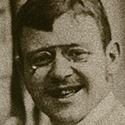|
Welcome to a thread about old music, and when I say old, I mean it. Music and the rest of the arts have existed since the dawn of man, and they are intertwined. It is important to know the history of music in order to fully appreciate how far we've come. A few words about the study of ancient music: The study of very old music is called archeomusicology. Another note is that this thread will cover Western music (I am incredibly dumb about non-western history in general, so any knowledge about what sweet music was being made in Sub-Saharan Africa in the Kingdom of Mali would be appreciated.) from pre-history all the way up to the Renaissance, where we transition from Medieval to Modern. This is not a Modern Music thread. Next thing would be "why is this called the very old music thread?" I called it that because "ancient music" presumes that we would only cover the ancient period, when we go to the Middle Ages. Prehistory and the Egyptians The first instrument we find in Europe is a bone flute from Germany which date back to 40,000 BP (before present). This is one of the first instances we have of creative music making in Anatomically Modern Humans, so it's a big deal. Also note that the flute is one of the oldest and most pervasive of all instruments, with only the drum rivaling it. The next big leap is the Cycladic culture, who made statues of musicians playing flutes and lyres, making the lyre the oldest known stringed instrument in Europe. At around the same time, Ancient Egypt recorded that in temples to the gods, women would play music in praise to them. Have you noticed something yet? We haven't had anything to listen to. This is because no one had any way to write music down. Writing in most cultures of the time was just for really important things like law and religion. Things like the sound of music often played second fiddle to the important parts of the work, especially the lyrics. This is how we get important works like "the Iliad" and "the Odyssey." Originally sung for entertainment, all we have left of Homer's original epic song are the lyrics, although there are some reconstructions, like this. https://www.youtube.com/watch?v=8QM1hTOXLLI The Canaanites and the Beginnings of Written Music In what is now the Middle East, a writing system called cuneiform was standard. It is in the Land of Canaan, in modern Syria, where we get possibly the oldest written piece of music, the "Hurrian Hymn to Nikkal," which dates back to 1400 BC. https://www.youtube.com/watch?v=viMbnj_Ei2A What was written on the tablet was not a system of notes on a staff like we have now. All that was written down was the tuning of the lyre, the chord progression and the main melody. So, musicians would play a version of the song based on this, sort of like how modern jazz musicians play out of fake books. (Note: the man in the video is playing what he thinks it sounded like based on the chord progression, knowledge of the main melody and his knowledge of strumming techniques of the period. He could be as close to the real song as "Ornithology" is to "How High the Moon.") At around the same time, in what is now Israel, the Psalms of the Jews were written. While the music is lost, the lyrics are still there. The structure of the Psalms have a huge impact on religious music when we get to the Christian era. Greek Music The Greeks get a reputation for inventing everything in the West, with good reason. The Greeks were the first to theorize about what makes good music, how music works, why music sounds good, etc. They basically invented the modern field of musicology. It was Greek mathematicians like Pythagorus who came up with "canons of scales" for art. This meant that a perfect statue must be a certain number of heads tall in order to be pleasing to the eye and more importantly for us, what kinds of tones could be used in modes. The Greek system of scales were called "ethea (singular ethos)." They were built not on whole and half tones like modern scales are, but on semi and quarter tones. The ethos system of Ancient Greece survives today as the mode system and as the tones in Orthodox Christian liturgies. Music was commonly played on pan flute and lyre. Here's an example. https://www.youtube.com/watch?v=gGVezj1gmLc This is called "Paean and Processional" and it survives as a fragment of a score. Notice how it is written not in scale, but in mode. The Romans Now we get to the stuff I actually care about.  The Romans conquered the known world and influenced the law and culture of the Western world like no other culture. Musically, this is no different. Some musical instruments invented by the Romans include the lute and the organ, although the organ was hydraulically powered. Roman music was used in almost every aspect of life. If something important happened, there was music around. Roman music is based on Greek music, but with more of the Roman flair. Roman music is much more lively than Greek music, which was all about shaping the natural world to be perfect. Have a listen. The Romans conquered the known world and influenced the law and culture of the Western world like no other culture. Musically, this is no different. Some musical instruments invented by the Romans include the lute and the organ, although the organ was hydraulically powered. Roman music was used in almost every aspect of life. If something important happened, there was music around. Roman music is based on Greek music, but with more of the Roman flair. Roman music is much more lively than Greek music, which was all about shaping the natural world to be perfect. Have a listen.https://www.youtube.com/watch?v=WJKkt-V7D0o The first song is called "Pavor" and lasts for 2:38. If you notice, there are women simulating orgasm on it, which shows something that has been a constant throughout historyŚmost music is for drinking, dancing or sex. This is an entire album of it, so listen and enjoy. Medieval Period Part 1: The Byzantines In 285 AD, the Roman Empire was partitioned into two portions by Emperor Diocletion for reasons that aren't important to this thread. In quite possibly the most important moment in European history, Constantine II decided to move the capital of Rome from Rome to Byzantium and to decriminalize Christianity. Byzantium, now modern day Istanbul, was renamed Constantinople after the emperor. The city was in a major strategic point, right on the Bosphorus Straits and near both the Black and Mediterranean Seas. Later, Emperor Theodosius I would make Nicean Christianity the official religion of the Roman Empire, thus creating what is now known as the Byzantine Empire. Secular Byzantine music is all but lost, but we have troves of liturgical music because it is still in use by the Greek Orthodox Church. This is the Mt. Athos version of the "Thrice Holy Hymn" from the Divine Liturgy of St. John Chrysostom. https://www.youtube.com/watch?v=-BpBgU-gUMA Byzantine music is chanted, traditionally without musical backup. It is based on Greek modes, with all music being in one of the 12 tones of Greek religious music. Medieval Period Part 2: The Islamic Empire In 609 AD, the angel Gabriel appeared to an Arabian merchant named Muhammad (PBUH) and told him to write down what was going to be the Qur'an. The world would never be the same. After this revelation, Muhammad began collecting so many followers that he was able to build an empire with its capital in the holy city of Mecca. Through the successive caliphates, the Islamic Empire was able to stretch from Western India in the East to Spain in the West encompassing all of the Middle East and North Africa. The music of this empire was built on the maqam, a pseudo-mode that is gives tonic structure to improvisation. All traditional Arabian music is improvised. The most famous piece of Islamic music is the Azan, the Islamic Call to Prayer. https://www.youtube.com/watch?v=fe8qRj12OhY Notice how this piece of music sounds very different from everything else I've posted. This is because of the maqam. Medieval Music Part 3: Western Church Music Left to its own devices without the supervision of an Emperor, Western Europe was allowed to go on all kinds of wild tangents. Rome fell to the Ostrogoth king Theodoric the Great and the Western Roman Empire was broken into smaller successor states with no one but the Roman Catholic Church to sort it all out. The Frankish Holy Roman Emperor Charlemagne was the official church appointed ruler. From the Franks we get all kinds of Medieval stuff like Gothic Architecture and most importantly, Gregorian Chant. Gregorian Chant, named after Pope Gregory the Great even though he did not invent it, was originally a monophonic (one voice) style of chanting which became polyphonic (one melody with chords underneath it) as time progressed. Gregorian Chant is still the official music of the Roman Catholic Church, even though the Second Vatican Council allowed other styles of music to be played at mass. This is an example of Gregorian Chant, this is "Deum Verum" https://www.youtube.com/watch?v=kK5AohCMX0U This is monophonic, as the music is one melody sung by all four voices of a male choir. Medieval Music Part 4: Medieval Secular Music This is the beginning of the current high/low music split. In the years after the Middle Ages, church music transformed into what is now thought of as classical music, and secular music became what we now know as pop music. There will be overlap between the two. While the Catholic Church had hegemonic control of knowledge, they did not have control of culture. Pieces left over from the common folk's Germanic roots lived on in their music. Every country had their own type of music, with each distinguishing itself from the rest to become what we now call "folk music." This is the beginning when Spanish guitar becomes popular and when English ballads begin to pop up. I will look at several examples of music. English Music English culture is an amalgam. The original inhabitants of the British Isles were Celts who were then displaced by Anglo-Saxon invaders from the north of Germany. Later, the Vikings and then much later, the Normans took over the island, each putting a unique stamp on the island's culture. English music is much like the culture of the people, an amalgam. Medieval English music is vaguely Germanic with straight up whole and half tone melodies with a polyphonic backing except with counterpoint. Most English music of this time is about drinking, sex, not dying and stories that convey a moral. Here's an example of Middle English music (made after the Norman invasion), it's called "Sumer Is Icumen In" and if you've ever seen The Wickerman this should be familiar to you. https://www.youtube.com/watch?v=sMCA9nYnLWo Notice how there are multiple melodies going on at the same time. This is counterpoint. Troubadours In Southern France, there was a tradition of wandering minstrels that would play music, usually about love. These were the famous troubadours. They were pure entertainers, wandering the countryside looking for castles and villages to pay them to sing. Most of the music was sung in the Medieval form of the Occitan language, a minority language related to French that is still spoken in the area. Sometimes they would tell a story about courtly love that is chaste and pure. Other times it was incredibly bawdy music about cuckolding. Still other times there would be devotional songs to the Virgin Mary. It all depended on the context and a good troubadour was able to sing any type depending on the situation. Here is an example, it's called "A l'entrada del temps clar," it lasts from the beginning to 2:52. https://www.youtube.com/watch?v=ijqNBpOU5Vs It's a fun dancing song! Very fun to sing along to. That's the end of our tour. Now's your turn! What's your favorite old music? Do you like it, hate it? Is it hard to listen to? Did I miss something? Make sure to post about it! Smoking Crow fucked around with this message at 06:07 on Jul 23, 2014 |
|
|
|

|
| # ? Apr 24, 2024 10:29 |
|
It's interesting to listen to some of these (surprisingly complex) examples, as the musical training I've received suggests early Western church music as being a structural beginning point of the Western classical tradition. The Greek example, for instance, sounds very complex and well-thought-out for that point in time, from a theory standpoint.
|
|
|
|
americong posted:It's interesting to listen to some of these (surprisingly complex) examples, as the musical training I've received suggests early Western church music as being a structural beginning point of the Western classical tradition. The Greek example, for instance, sounds very complex and well-thought-out for that point in time, from a theory standpoint. There is a reason for that. Greek music is the basis of Western church music via the Romans, who used Greek concepts. The Roman music I posted was written in Greek notation, for example. Smoking Crow fucked around with this message at 06:10 on Jul 23, 2014 |
|
|
|
I have liked medieval music for a while, mostly Gregorian chants and masses. The Sanctus from Messe de Nostre Dame by Guillaume de Machaut is my favourite piece. The mass is also believed to be the first polyphonic written music if I remember correctly. https://www.youtube.com/watch?v=CzIKH7Dk5VM
|
|
|
|
I think this might be one of the pieces from the tail end of what you're talking about, Smoking Crow, and it's certainly one of the better-known ones. https://www.youtube.com/watch?v=nKj1iK2WKS8 Additionally, here's a bit of chant that has permeated more recent music to a degree: https://www.youtube.com/watch?v=fnfv1LUMaBA
|
|
|
|
If you want to hear a lot of Medieval and Renaissance music, listen to The Hilliard Ensemble. They sing a lot of English folk songs and Tridentine mass settings.
|
|
|
|
The album you linked for the Romans is nuts, wow. I'd love to hear more about it. How close is the album's rendition estimated to be the real historical music?
|
|
|
|
Cobweb Heart posted:The album you linked for the Romans is nuts, wow. I'd love to hear more about it. How close is the album's rendition estimated to be the real historical music? It's pretty close because the Romans were super anal about writing everything down, just as they were for everything else. The Romans used Greek notation for their music, and published a lot of sheet music. If you want more music, here's part II: https://www.youtube.com/watch?v=SB9ZZ5V1DX8 and part 3: https://www.youtube.com/watch?v=NhuTAnJcHH4 edit: and of course, we keep these scores because 1) Medieval monks kept copying them and 2) Renaissance music borrowed very heavily from Roman styles of music, so they took care to preserve the music they were emulating. Smoking Crow fucked around with this message at 02:16 on Jul 25, 2014 |
|
|
|
Hey don't die little thread, you're so full of potential.. here's a link to ancient Greek musical notation: http://ancientgreekmusicalnotation.co.uk/Home.php I've only just skimmed it, looks like the facts as know are represented even if a lot of the interpretation is the site owner's personal one.
|
|
|
|
Can John Dowland and other early lutists go in here (this thread is too great to let die), he ever so slightly predates modern tonality! I wrote a pretty poor essay on Mr.Dowland at least a yearo ago and was surprised with some of the information I learned about him and the English musical landscape of the time (mostly the theory). If I recall correctly the English had their own theory which was fairly similiar enough to continental theory but still quite distinct at the time. Dowland went to school (Oxford at christchurh or something?) with the prominent composers / theorists of the time. Their reference to modes didn't really indicate church modes but rather something they termed moods / airs. I don't recall exactly because it wasn't the focus of my writing. There was a cool dissertation / thesis that did a much better job explaining it , basically saying hey maybe using modern theory is silly lets take a look at old treatises. I was also surprised to find out Dowland was such a hustler instead of being the first emo dude. He published a few musical books , many which did quite well. He networked like a champ and secured himself pretty good appointments , even eventually the one he wanted. Was married had a kid etc etc. His stuff is also fun as heck to play on guitar (you encounter it through various RCM books). https://www.youtube.com/watch?v=x1RS1i5wy2Q here is a video of flow my tears just to cap off my little ramble.
|
|
|
|
Hello, thread, it's been a while. Here is an example of pre-Gregorian Western Chant. Notice how it is both polyphonic and similar to Greek music. https://www.youtube.com/watch?v=2JOShBSsql0
|
|
|
|
von Braun posted:I have liked medieval music for a while, mostly Gregorian chants and masses. The Sanctus from Messe de Nostre Dame by Guillaume de Machaut is my favourite piece. The mass is also believed to be the first polyphonic written music if I remember correctly. I really liked this. Do you know of any other composers from that period in the same vein? I have little experience with classical music, much less very old stuff, but I've always had an affinity for choral pieces like this. Wronkos fucked around with this message at 19:19 on Oct 8, 2014 |
|
|
|

|
| # ? Apr 24, 2024 10:29 |
|
Wronkos posted:I very much like choral pieces like this. Do you know of any other composers in the same vein? Hermann of Reichenau, Hildegard Von Bingen, Vittoria Aleotti and uh, Romanos the Melodist, I guess
|
|
|









